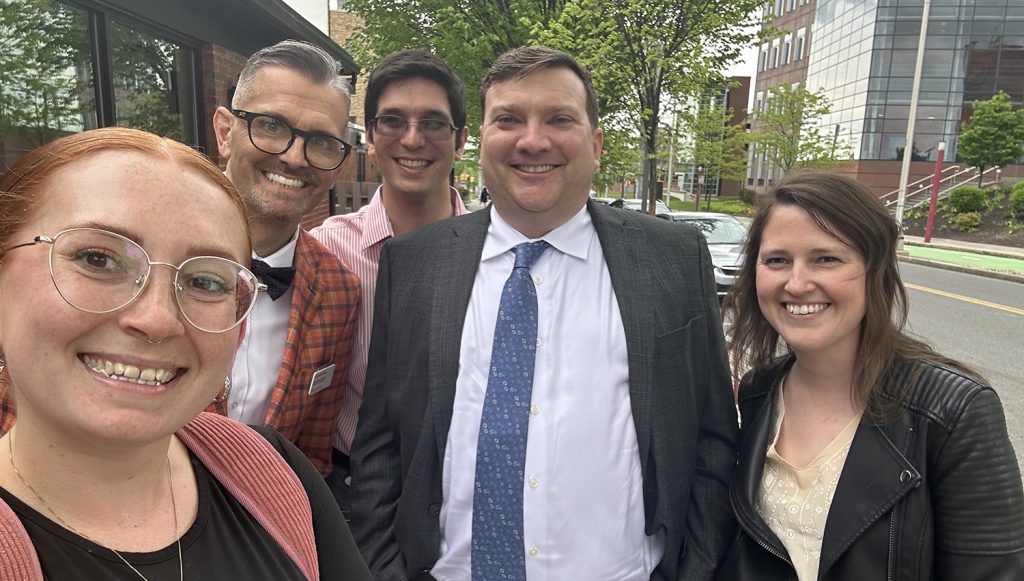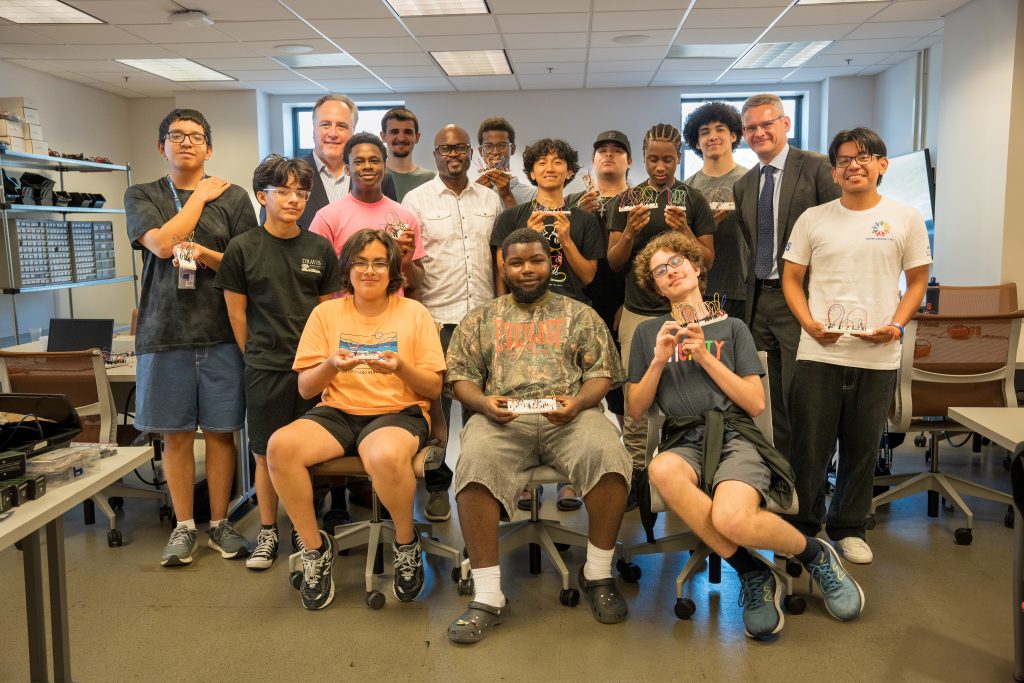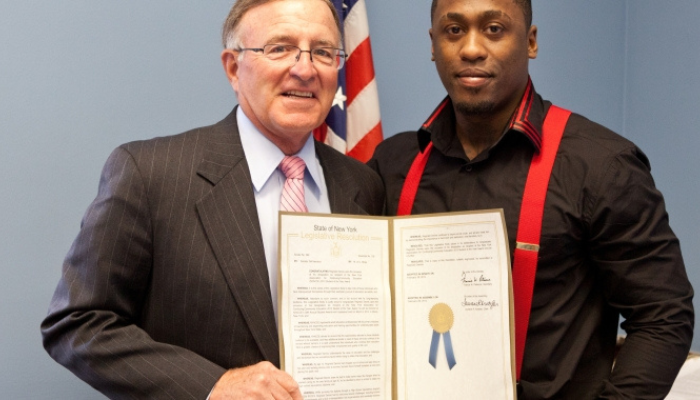
Syracuse University has a long history of support for those who serve in our country’s armed forces. At the College of Professional Studies, our mission is to provide meaningful assistance to the military-connected population seeking a Syracuse University education. Miguel Pica, military student success specialist in the Office of Online Student Success, stays true to this mission by assisting the military-connected students. In this Q & A, get to know Miguel and his role in the Office of Online Student Success.
What’s your current role and what does it involve?
My current role at the College of Professional Studies is military student success specialist. I primarily serve as the academic advisor for our non-traditional military student population and military-connected students across multiple academic programs offered at our college and serve as the subject matter expert in conducting transfer credit evaluations (TCE) from our military population directly related to their military service.
How long have you been with the College of Professional Studies, and what’s your journey been like?
I have been with the College of Professional Studies since Fall 2023 and my journey has been exciting each and every day. Every interaction I have with my students has been memorable and more importantly, an opportunity to truly give back to the community I am also part of.
In one sentence, how would you describe your department’s mission?
The Office of Online Student Success fosters a supportive environment where online students are embraced as valued members of the Syracuse University community, pairing each admitted student with a dedicated online success advisor who offers personalized academic and online success advising, proactive outreach, and coordinated resources to empower both academic and personal development throughout their degree journey.
Can you share a student interaction that left a lasting impact on you?
Honestly, there are several interactions I have had that have left a lasting impact. The most recent was this past graduation.
One of our students graduated this past Spring. While his primary advisor was my supervisor, Jonah Fugo, his story is nothing short but amazing. Liam and I actually served together in the Army at Fort Campbell, KY back in 2015/2016. We both went through selection for 160th SOAR (A) and successfully completed our training. While we were both assigned different companies (due to our occupations), we both served in the same unit. Somehow, we both ended up at Syracuse University. After seeing him walk, we both took a moment to catch up on life following the closing of the ceremony. This interaction truly reminded me how small and close the military community is.
How does your team help students succeed in the real world?
Compared to the traditional students on campus, majority of our students are already well into their careers (i.e., military, corporate, professional athletes, etc.). We are mostly used as resources to support our non-traditional students in their next career advancement and/or either excel or pivot in their career.

In what ways does your team go above and beyond to serve your students?
Our team are always readily available and actively responsive to student emails/needs. Whether it is to support our students or when we get a call from students on Main Campus, we do our best to direct them to the resource needed. When it comes to my role, I am either connecting students to either University and/or Military resources.
What advice would you offer to prospective or current students?
The advice I would give prospect and/or current students is to pursue the education that best suits your needs. Not only professionally but more importantly, your interests. With that in mind, it is okay to change your major at any moment you feel the need to switch. Syracuse University will support you!
As an undergraduate alumnus from ‘21, I can assure you that it is okay. When I first started my journey at Syracuse, I started majoring in biology and finished my education as a policy studies graduate. Sometimes, all it takes is one course to inspire you to pursue a major that you may have never considered before.
From your experience, what makes the College of Professional Studies stand out as a leading environment for teaching and learning?
From my experience and exposure to the teaching and learning environment of the College of Professional Studies, what makes this college unique is the flexibility it offers to the students it serves. All courses offered are Online, administered in an 8-week format, and in the evening. This specific format caters to the non-traditional students, meeting the mission set forth by our previous Founding Dean, Kenneth G. Bartlett, and Chancellor William Pearson Tolley.
The quotes above are hung on the fourth floor in the College of Professional Studies and it is something our current Dean, Michael J. Frasciello, reminds our faculty and staff of our college’s mission. While our communities constantly change, these quotes continue to remain true. Reminding myself that our college continues to strive in meeting today’s challenges within higher education head-on. This is what makes our college truly unique and stand out.
“University College is more than a night school. It is an idea that in an age of continuous change, learning must be continuous as well. In an age of rapid change, democratic institutions need the steadying influence of continuous education. That is our purpose at University College.”
-Founding Dean Kenneth G. Barlett, Inaugural address to the staff and faculty, 1948.
“We are building a college that will dare to do things, to experiment, to assume responsibility for the unsuccessful effort as well as the successful venture, to not be bound by tradition but responsive to change and to community and adult student needs.”
-Chancellor William Pearson Tolley, Address to Syracuse University Senate chartering University College, 1947.
The quotes above are hung on the fourth floor in the College of Professional Studies and it is something our current Dean, Michael J. Frasciello, reminds our faculty and staff of our college’s mission. While our communities constantly change, these quotes continue to remain true. Reminding myself that our college continues to strive in meeting today’s challenges within higher education head-on. This is what makes our college truly unique and stand out.




